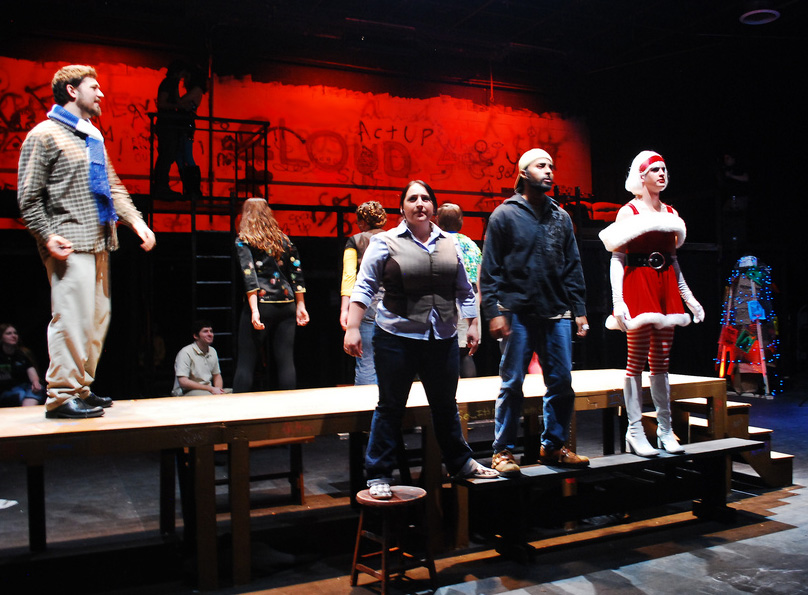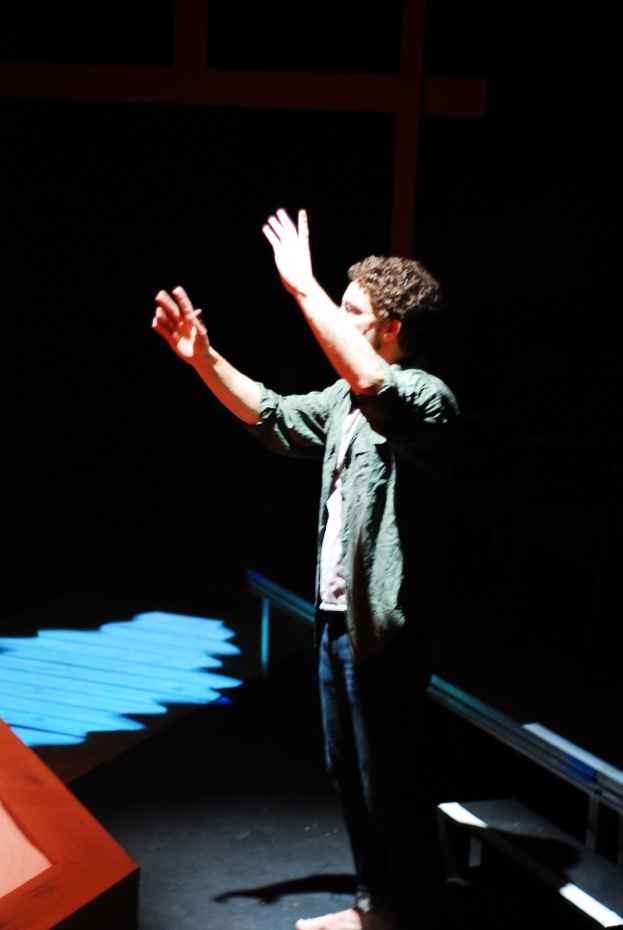Melissa Foulger
“I regard the theatre as the greatest of all art forms,
the most immediate way in which a human being
can share with another the sense of what it is to be
a human being.”
— Thornton Wilder
DramaTech Theatre was founded upon the mission of “encouraging the creative talents of Georgia Tech’s future engineers, managers, architects, scientists, and leaders: talents that might otherwise never fully develop in the world of calculators and computers.” Through multiple productions ranging from improvisation to Broadway musicals, world premieres to variety shows, DramaTech has spent over 60 years asking students to push the bounds of creativity to create quality performances for the rest of campus. More importantly, it has been asking students to find their humanity and their creativity.
Employers today want more than students who have excelled in their majors. They are looking for people who have other assets such as flexibility, problem solving abilities and interpersonal skills. The arts are an integral part of preparing students for the 21st-century workforce. In The Arts and the Creation of the Mind (2002, p. 70—92), Dr. Elliot W. Eisner identified key competencies of cognitive growth that are developed through arts education and enhance skill development in preparation for a career including
• perception of relationships;
• skills in finding multiple solutions to problems;
• attention to nuance;
• adaptability;
• decision-making skills; and
• visualization of goals and outcomes.
The theatre provides an incubator for development of these skills. It requires a group of people to come together as a team to create a performance. They must work together. They must problem solve. They must pay attention to detail; otherwise the show will not go on. And the show must go on—even at Georgia Tech.
When I tell people what I do, the question most often asked of me is “there’s theatre at Georgia Tech?” My answer is always a resounding “yes”. As the Artistic Director of DramaTech and an instructor of classes that focus on theatrical performance and production, it is my mission to illuminate the necessity for arts in the world of science and technology. The function of my job is to do just what Thornton Wilder says, to afford students the opportunity to “share with [one] another the sense of what it is to be a human being.”
The arts are an integral part of preparing students for the 21st-century workforce.
So, DramaTech thrives at Tech because it too is a laboratory. In this setting, students are given access to a theatrical space to experiment and create. They learn through a model of peer mentorship and advisement. Don’t know how to hang and focus a light? Another can teach you. Never used a sewing machine? An alumnus can teach you. Want to learn how to make walls of stone from Styrofoam? Just ask and we’ll bring in a local theatre professional to teach a workshop. Students are starving to learn more about the arts. They take their job seriously and are deeply committed, often matching their academic hours with hours at the theatre.
Even more exciting is the opportunity that these students receive to learn the skills that Eisner says are necessary for the current market. In production, we work in teams. This requires us to communicate about their designs and to problem solve how all of the components can cohesively come together. Students navigate the rocky landscape of leadership in a peer setting—exploring when it is appropriate to be a leader or a friend. The importance of deadlines and planning becomes tantamount as they navigate the time constraints of the busy Georgia Tech academic life. Finally, we take risks—trying to enhance the theatrical experience with current innovation.
Recently, DramaTech worked on an adaptation of Haruki Murakami’s after the quake in which a Microsoft Kinect was used to track the gestures of an actor. The goal of the Kinect’s output was to aid in the amplification of the emotions during specific storytelling scenes. This piece of technology was developed from a Special Topics class that I co-taught with a Digital Media PhD candidate that focused on technology in performance. Students were introduced to the play and then worked in teams to develop different technologies they thought would work with the production. Through a series of pitch processes, several different technologies were devised and the Kinect was chosen as the final product to be created for the production. Students worked on coding the Kinect and building the hardware in order to give a demonstration by the end of the semester (which they were able to do successfully). We were then able to continue to implement the Kinect gesture tracking system into the final production with great success.
Regularly, students remark on how their work on productions aids the group work that they have to do for class. They find that they are better planners and communicators because they are constantly executing those skills when they work on DramaTech productions. Alumni stay connected to DramaTech because they have a close circle of friends that remain an important part of their lives. They view their time at Tech through the lens of DramaTech. It is the place where they flourish outside of the world of academics. It is their home away from home. So, when people ask me incredulously about theatre at Georgia Tech, my answer continues to be a resounding yes because, at DramaTech, we’re building more than engineers, we’re creating well-rounded humans.


